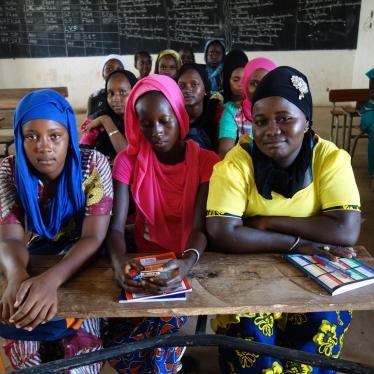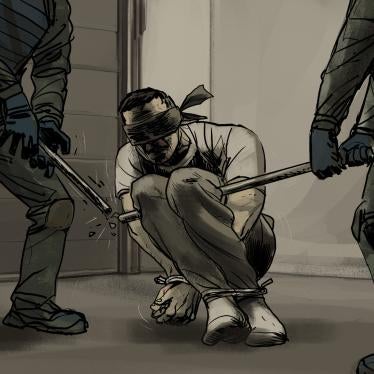Amnesty International, Human Rights Watch, the Nigerian Bar Association and Nigerian NGOs have called on Nigeria to abstain during the vote on a second resolution on a moratorium on the use of the death penalty which will be introduced at the United Nations General Assembly (UNGA) 63rd Plenary Session, in the week starting 15 December.
The Third Committee of the UNGA adopted a draft resolution entitled "Moratorium on the use of the death penalty", A/c.3/63/l.19/Rev.1, on 20 November with a strong cross-regional support. An overwhelming majority of 105 states voted in favour, 48 against and 31 abstained. Eighty nine countries co-sponsored the resolution, two more than in 2007. We regret that Nigeria voted against.
The below signed organisations strongly encourage Nigeria to abstain when the resolution is voted on in the plenary session of the UN General Assembly this December. Nigeria previously abstained when the former UN Commission on Human Rights voted on a similar resolution in April 2005, (resolution 2005/59), calling upon all states that still maintain the death penalty "to abolish the death penalty completely and, in the meantime, to establish a moratorium on executions."
As a member of the UN Human Rights Council, Nigeria is required to uphold the highest standards in the promotion and protection of human rights. The organisations hope that Nigerian Ambassador Uhomoibhi's term as the President of the Human Rights Council will also provide the opportunity and impetus for Nigeria to lead by example by taking concrete steps to promote human rights both internationally and within Nigeria.
Background:
The strong, cross-regional support in this year's resolution reflects a long-standing trend towards abolition of the death penalty in all regions of the world. In 1977, just 16 countries had abolished the death penalty for all crimes. As of December 2008, that figure stands at 93. Nine other countries have abolished the death penalty for ordinary crimes and retain the death penalty only for exceptional crimes such as crimes under military law or crimes committed in wartime. A further 35 countries can be considered "abolitionist in practice" as they have not carried out an execution for at least 10 years and are believed to have a policy or established practice of not carrying out executions, and countries which have made an international commitment not to use the death penalty. This brings the total number of countries that have currently abolished the death penalty in law or practice to 137. This trend is also reflected in the steady increase in the number of states parties to international and regional treaties providing for the abolition of the death penalty.
In November 2008, the African Commission on Human and People's Rights at its 44th Ordinary Session in Abuja, Nigeria, adopted a resolution calling on state parties to the African Charter on Human and Peoples' Rights to observe a moratorium on the death penalty.
In Nigeria the death penalty has been debated for several years. The Nigerian National Study Group on the Death Penalty acknowledged in 2004 that "a system that would take a life must first give justice" and thus recommended a moratorium on executions saying: "the call for an official moratorium on all executions is borne out of the conviction that the Federal Government can no longer ignore the systemic problems that long have existed in the criminal justice system." The Presidential Commission on Reform of the Administration of Justice also reiterated that conclusion in May 2007.
In October 2008, an Amnesty International and Legal Defence Assistance Project (LEDAP) joint report ‘Nigeria: Waiting for the hangman' (AFR 44/020/2008) documented a catalogue of failings in the country's criminal justice system, concluding that hundreds of those awaiting execution on Nigeria's death rows did not have a fair trial and may therefore be innocent. An immediate moratorium on executions was recommended to prevent innocent people being executed.
Signed
Access to Justice
Amnesty International
Centre for Development, Constitutionalism and Peace Advocacy (CD-COPA)
Centre for Human Rights and Development (CHRD)
Committee for Human Rights and Research Development
Civil Liberties Organisation (CLO)
Civil Society Legislative Advocacy Centre (CISLAC)
Centre for Law Enforcement Education (CLEEN Foundation)
Constitutional Rights Project (CRP)
Global Rights and Development Initiative (GRDI)
Human Rights Law Service (HURILAWS)
Human Rights Watch
Legal Defence and Assistance Project (LEDAP)
Legal Resources Consortium (LRC)
Nigerian Bar Association (NBA)
Nigerian Humanist Movement
Prisoners Rehabilitation and Welfare Action (PRAWA)
Women Advocates Research and Documentation Centre (WARDC)








